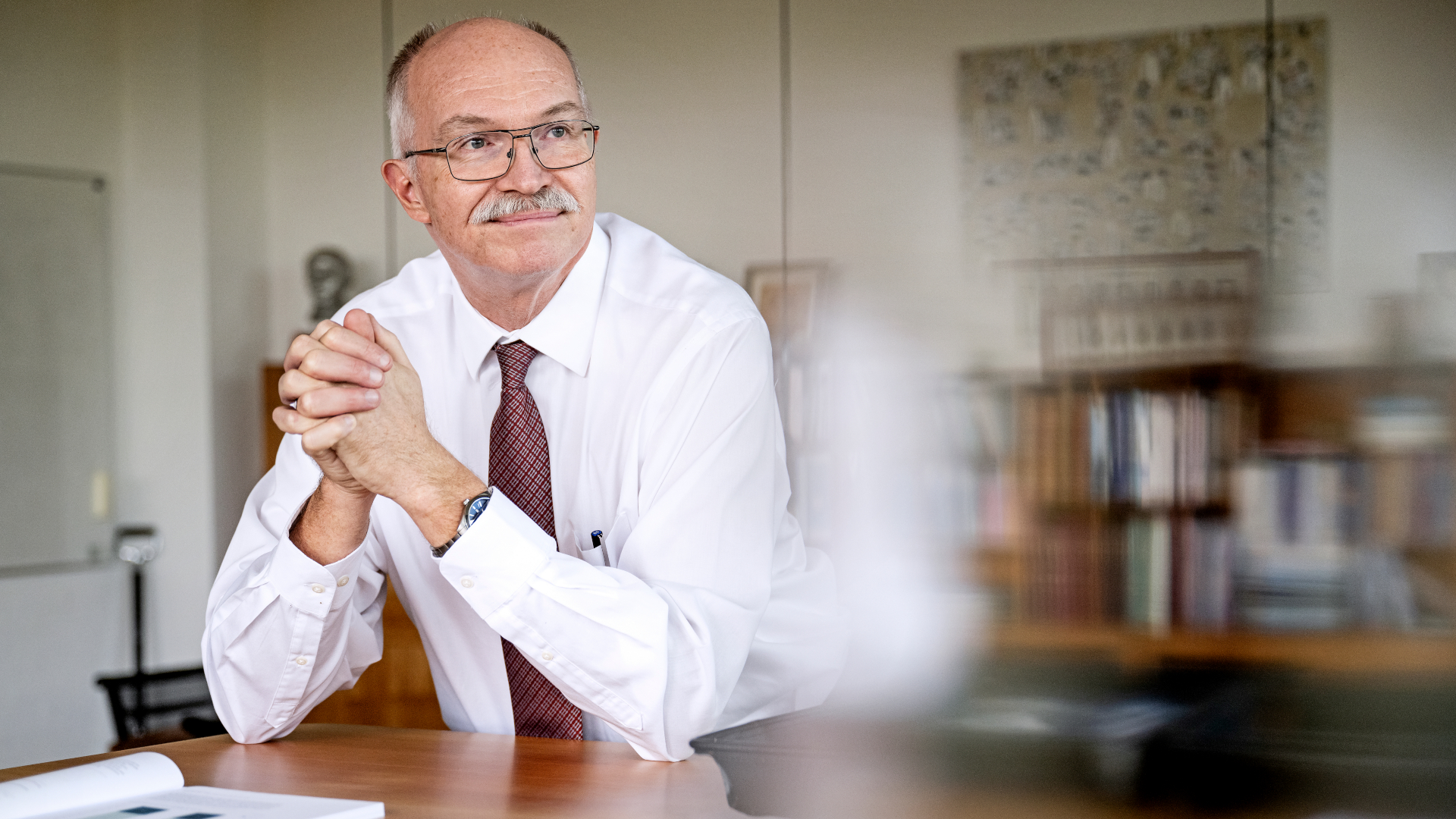DTU President Anders Bjarklev leaves a lasting impression on the public debate on education when he steps down as chairman of the Rector’s Conference of Universities Denmark on 1 September 2022. He intends to remain a prominent figure in that debate and will continue to express his views, but now with an increased focus on issues that are important for DTU. Here, Anders Bjarklev looks back on his time at Universities Denmark and ahead to the DTU issues he wants to focus on.
- You took up the position as chair of Universities Denmark in 2015 and now you’re resigning after seven years. How has the organization changed during your tenure as chairman?
When I took up the position, I saw a real need to collaborate and achieve consensus across the university sector. There are eight universities in Denmark, all of which have their own focus areas, so the first task was to identify: what issues can we agree on, and how do we communicate them? Universities Denmark needed a greater public impact so we could have a stronger say in the education debate.
I am proud that we achieved that. I’ve lost count of how many early mornings I’ve stood in a radio studio, or late nights when I’ve been interviewed on one of the news programmes. The common voice, that the unification of the sector has given Universities Denmark, has been used to talk about the importance of research for Denmark, about the value of higher education for society and businesses, and about the political decisions in the education sector that Universities Denmark has disagreed with.
- On the topic of political decisions: over the past 20 years, 29 new reforms have been carried out in the education sector – some of them under your chairmanship. In 2017, this prompted Universities Denmark to write in a press release that “there is barely time to implement a new reform before the next one is imposed.” How do you experience the collaboration with politicians?
During my time as chairman, Universities Denmark has been critical of many of the reforms. Among other things, there was the study progress reform, the education ceiling, the “taximeter” discussion, and most recently the relocation reform, which Universities Denmark fundamentally believes gambles with the quality of already well-functioning higher education programmes. It’s regretful that we have to waste energy speaking out after the damage has already been done.
I hope that politicians will listen more to those of us who work in higher education, and to students, before making sweeping decisions in the education sector that can affect the quality of degree programmes. If that was the case, the relocation reform would probably never have happened.
- In the future, you won’t be speaking as chairman of the Rector’s Conference of Universities Denmark, but as President of DTU. What will be your main focus areas?
When I step down as chair of Universities Denmark, I’ll have a lot more time to focus on the issues I’m passionate about as president here. Especially the lack of engineers. According to the Danish Society of Engineers’ (IDA) latest forecast, by 2025, Denmark will lack 6,500 engineers to solve the major societal challenges we face. Those include climate change and the current energy supply crisis. At the same time, the government’s demand for the relocation of study places will result in a decrease in the intake of new students at the main campuses from 2030.
DTU is created to benefit society and ensure sustainable development, but this requires that we have enough people.
Thus, my clear message is: we need to train more, not fewer engineers. We need the STEM skills of both Danish and international students. And we need to use innovation and digital tools to reach our goals. The focus is on the roll-out of DTU’s two solution models to ensure that we educate more skilled engineers throughout the country: Digital Twin University and Residential Colleges. The Digital Twin University model offers a digital, online university education where most of the course can be taken no matter where in the country or the world you live. Residential Colleges will be a kind of satellite universities in Skive, in Kalundborg, on Bornholm and in Rødby, where the students will have a close connection to the business community by taking part in large construction projects such as the Bornholm Energy Island and the Femern Belt tunnel. I think it’s important to spread the message outside DTU that if the quality of DTU’s programmes is reduced, society as a whole will suffer.
- Why is visibility so important to you as president of DTU?
At DTU, I’ve often said to the researchers who make a huge effort for society every day with the research and sustainable solutions they develop: Get involved! Get involved in the debate so the important knowledge you have is disseminated and adds the necessary nuances to the current social debates. Get involved so the politicians have access to knowledge that enables them to make the right decisions. And finally: Get involved so everyone gets to see what enormous value DTU’s research adds for businesses, public bodies, and civil society.
If we want politicians to put the natural and technical sciences high on their list of priorities, we also need to draw attention to the societal value we create here at DTU. My wish is to pave the way for a strong DTU culture, where we both benefit society and show how we do so. I look forward to have my main focus on the causes that constitute DTU’s main activity.
